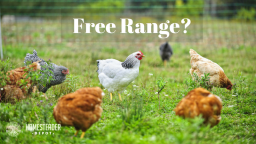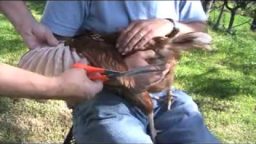Dogs are great companions. Homestead dogs are more than that. They serve many functions around the farm, from taking care of predators to herding your cows. A homestead dog really does do it all and then some. Once you have one, you’ll wonder why you didn’t get a homestead dog sooner. In fact, the only better than one homestead dog is two of them. The more help that you have around the farm, the better, right?
Choose the Right Breed
It all starts with picking the right breed. A homestead dog can be a rescue mutt. After all, it all lies in the amount of training that you provide so that you can teach your pup to do the right things and be a big help around the homestead. With that said, you’ll want to look for the following breeds, or some combination thereof (if you’re going with a general mutt or rescue):
German Shepherd – There’s a reason why German Shepherds are police and rescue dogs – they are tenacious, very smart, and have serious protection instincts.
Labrador Retriever – Labs are easy to train, large enough to scare off people and keep cattle in line, and are great hunting partners.
Collie – Lassie was a Collie, so it’s hard to overlook the brains that are the main characteristic of this breed.
Any outdoor-loving, medium to large size dog will work. If you’re a big fan of watching dog shows on television, then focus on the hunting and herding groups. Those dogs possess all of the qualities that will make a good homestead dog.
They Herd Your Livestock
The classic “dogs herding your cows and cattle” image really is true. These animals will keep all of your others in line, especially if you choose a breed with natural herding instincts. (Those without can be trained, don’t worry.) You want your homestead dog to keep an eye on your livestock and understand exactly where the boundaries are so that your cattle don’t end up on someone else’s land or getting lost someplace.
They Provide Protection
Dogs are great at providing protection. If you allow yours in the house, they’ll bark at everyone who knocks on the door. This is a good thing, particularly if you live in the middle of nowhere and are wary of strangers lurking around who are up to something. Even when you’re not in the house – as long as you’re anywhere on the property – your dog will watch out for you and your family. It’s their job to take care of you in every way that they possibly can. You won’t have to worry much when your homestead dog is around.
They Hunt for Small Prey
Not only will your dog help with your livestock and protect your family, but they’ll also hunt for small prey. Those squirrels, rabbits, and foxes never stood a chance with your homestead dog around. The second something worth chasing pops up on their radar, the dog will take off after it. In the end, they’ll have chased it off or killed it, depending on whether or not they could reach the critter.
They Provide Companionship
Above all else, a homestead dog is a loyal companion. They will remain by your side, no matter what, keeping an eye on you and everyone else in your home. Your homestead dog will miss you so much when you’re away that they’ll great you the second you get home. They are lovable friends whose company you’ll enjoy. It’s hard to describe the bond between a homestead dog and their human, but believe us, it exists!









